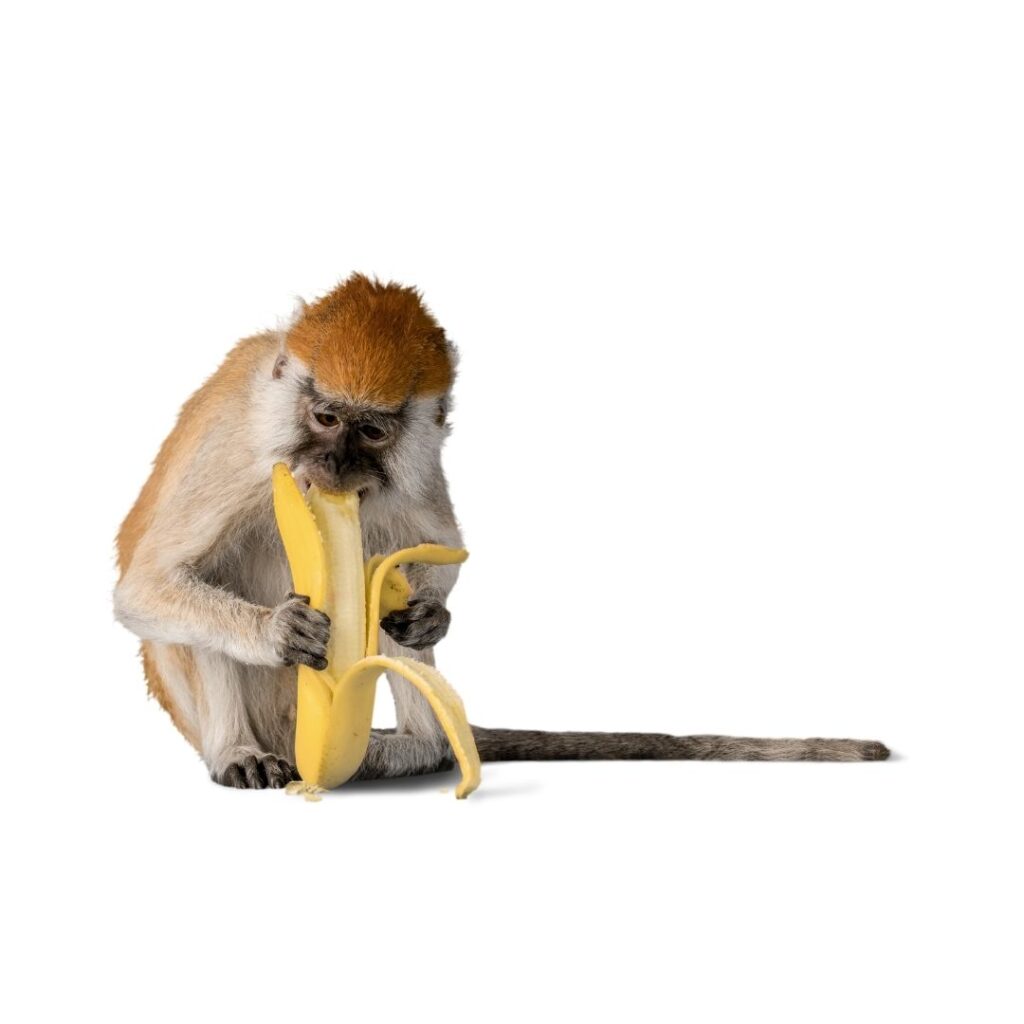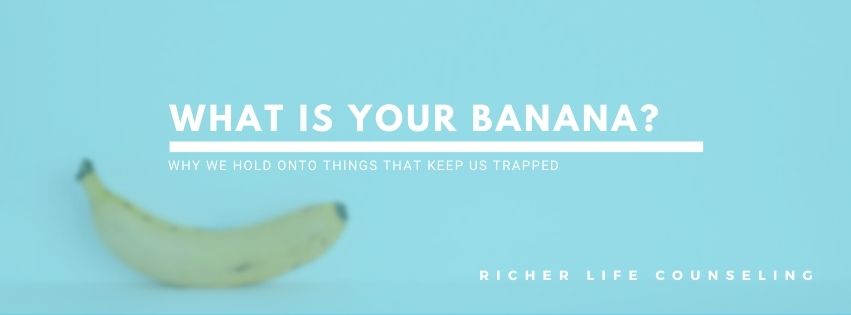Why do we hold onto things that keep us trapped?
Have you heard the story of how to trap a monkey? It’s been told that it was the idea of hunters in a jungle to take monkeys to zoos. It’s also been said that farmers needed to capture and remove monkeys to save their crops. It’s been said that jars, bottles, cages, and coconuts were used. No matter what was used or whose idea it was, the message will be the same. Here’s one version of how to catch a monkey.

In a small village, monkeys were destroying the crops of farmers. Desperate to save their crops, the farmers knew they needed to be rid of the monkeys but wanted to be kind and humane; they did not want to kill them. Monkeys are fast and agile creatures, so catching one wasn’t easy. One farmer had the idea of putting a banana in a heavy jar with a narrow opening. The farmer had observed the behavior of the monkeys; he knew a banana would surely be a temptation. He placed a banana inside the jar, and sure enough, the monkey reached into the jar and clutched the banana. The monkey’s hand easily slipped through the narrow opening, but upon grabbing the banana, the hand became a fist. When the monkey tried to remove his fist while holding the banana, he could not due to its size. The monkey repeatedly tried to escape with the banana but didn’t understand the need to let go of the banana to run away. The monkey would struggle, twisting and pulling its fist, squealing in frustration yet never letting go of the banana. If you were watching this unfold, you might even yell out to the monkey, “Just let go of the banana!” So much importance was placed upon having the banana that the monkey never realized it would be captured until a burlap sack was tossed over its body. The monkey had the power to be free but never used that power. It became trapped because the banana had become so incredibly important.
The question is, what’s your banana?
What have you placed so much focus and attention that it keeps you from being free and moving away from a less favorable situation? Are you squealing in frustration with a clenched fist around something that prevents you from attaining a happier, healthier life? Maybe you’ve struggled to forgive someone. Having someone “do you wrong” is hard to get over but ultimately, not forgiving someone is harmful to your mental and physical health. In fact, studies show that being unforgiving leads to anxiety, depression, and major psychiatric disorders. It increases the stress hormone cortisol. (www.apa.org/monitor/2017/01/ce-corner).
Here are some common “bananas”
- Thoughts (the idea of the perfect life, what do people think of me, comparison to others…)
- Difficult emotions (fear, worry, guilt, anger, shame…)
- Unable to forgive
- Ego (it’s a weakness if I let go, I’m too proud to let go…)
- The need to control
- Unhealthy behaviors
- Desire/wants
- Unhealthy relationships
- Greed
- Attachments
Finding The Banana
Maybe your family night is on Monday, but Mondays don’t really work for all of you, and as much as you try, it just isn’t working. Does another night work better? Seek peace, not guilt. Family night isn’t the banana—Monday is the banana.
Letting Go of Your Banana
How might life look for you if you just opened up your fist and released your grasp? Is what you’re holding onto worth you being trapped? In reading this, you may realize that you are holding onto something that really isn’t having a positive effect on your life and maybe keeping you from fulfilling goals, moving forward in a positive direction, succeeding in your job or school, forming healthy relationships, and having an overall sense of physical and mental wellbeing.
Again, what’s your banana? You may not even really know what it is, but you know that something about your life does not feel right. That constant tired feeling you have may be the energy that it takes to hold that darn banana. The banana is appealing, or so you believe, and perhaps it’s been good to you in the past, but right now, you’re tired, you want to feel better; you want to feel happy.
What If You Can’t Let Go
You may be thinking, “But I’ve held onto my banana for long. How can I possibly let go?” Just because you’ve held onto something for a long time doesn’t mean you should. It doesn’t mean that it’s worth the energy it takes you to maintain a fierce grip. Does it still serve the same purpose that it once did? Does it bring positivity to your life? Does it make you happy or keep you stuck in one place? Understandably, letting go is hard. You’ve put a lot of time and energy into something that is now familiar, but familiar doesn’t mean it’s healthy. It may help to start by loosening your grip at first until you’re at peace with fully letting go. If you’re now saying, “Yep, I have a banana, and I don’t know how to let go,” seek the help of a therapist. Therapists not only have the education, training, and experience but are also human. They understand “bananas.”
As hard as you think letting go is, consider the energy and toll it takes on you to keep holding on. Yes, you might lose something, but you also just might find yourself and live the life you desire.
"Sometimes letting things go is an act of far greater power than defending or hanging on." – Eckhart Tolle
- What Is Your Banana? - August 10, 2021
- Premarital Counseling - June 24, 2020
- Why Therapist Ask: How Does That Make You Feel? - June 2, 2020


